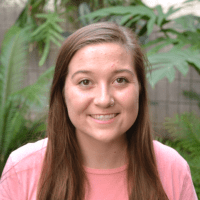
“Determining the threat that florally transmitted parasites pose to wild bees“
Project Summary:
Insect populations, including many wild bee species are in decline which is threatening the valuable pollination services they provide. Pollinators are shrinking in number and in range with parasites thought to be accountable for part of this decline. Parasites that infect managed honey bees and bumble bees, are well studied and understood. However, there are over 20,000 species of wild bees and little is known about the impacts of these parasites on the wild bee populations. In order to gain a better understanding of bee parasite transmission and virulence, collections were made of wild bees from across the central NY region and inoculated with a microsporidian parasite known as Nosema. Nosema is frequently found in honey bees and known to transmit across genera. Treatments for the wild caught bees were administered using parasites isolated from the guts of infected managed bees. Each bee was maintained in isolation, and exposed ad libitum via a feeder filled with 40% sucrose suspension with either 1,000 spores/mL of Nosema, or a dilution of uninfected gut homogenate. After exposure, defecation and survival were monitored daily to confirm ingestion and parasite threat respectively over a 15-day period. Little is known about the impact of managed bee parasites across populations of wild bees. The identification of bees that are either vulnerable or invulnerable to these parasites is beneficial and necessary for understanding how best to direct conservation efforts. This research can be used to continue the studies of wild bee parasites or utilized generally for a better understanding of pollinator health.
My Experience:
Noticeably, this project was not focused on the plant genome research to which this REU was dedicated. However, this experience working with insects was so much fun and provoked an interest I didn’t know I had. This research project is not to be discounted since without pollinators, plant biology studies would be fruitless, literally. The academic education was something that I will take with me, simply learning how to conduct research and the idea process of it was indispensable. Equally as valuable were the relationships that fostered the growth of a young scientist, and I am grateful for the guidance for my future in research and eventually graduate school. This experience helped me to learn about my anticipated field of study, expand my skill set, and learn about myself.
